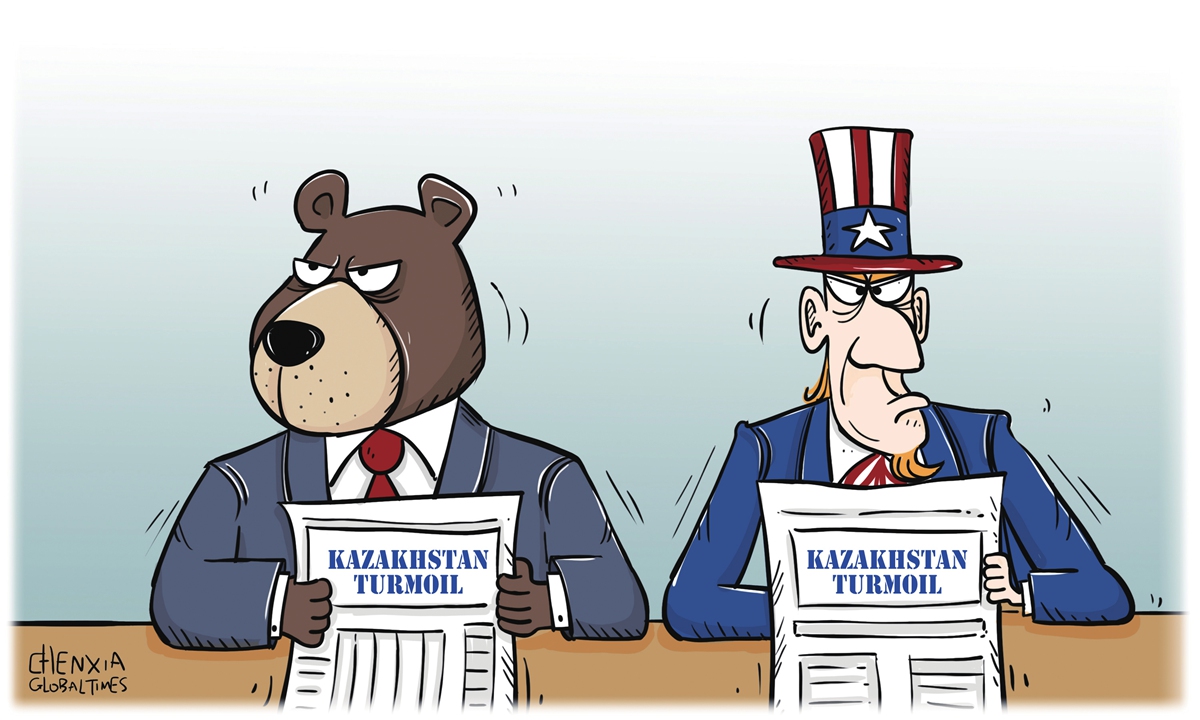
US Diplomatic Hypocrisy Laid Bare
(China) on 6 January 2022
by Zhang Hong (link to original)
First, the United States is seeking to use Eastern European countries to keep EU diplomacy in check. Since the downgrading of neutral diplomatic relations between China and Lithuania, the United States has not only continued to support Lithuania’s flawed position, but has also actively lobbied other EU member states to support Lithuania. Washington is attempting to rally Europe around "economic coercion" of Lithuania, emphasizing its solidarity with Lithuania and the like, essentially trying to hijack the European Union’s autonomous foreign policy and undermine the One-China principle of EU diplomacy.
As is commonly known, the One-China principle is a recognized norm in international relations and the consensus among the international community. It is also one of the important political foundations underpinning China’s strategic partnership diplomacy with the EU, and one that has been affirmed in a number of important EU-China diplomatic articles. Against the backdrop of an uncertain global economic recovery and the devastating effects of COVID-19, maintaining the stability of EU-Chinese relations is of great importance to both sides. Of course, the United States’ attempt to use Lithuania to hijack the EU’s diplomatic program with China did not prevail, and EU member states were not influenced by the United States, sticking to their principles from start to finish, as most of them recognize what the United States has in mind and are not willing to compromise the overall interests of Europe for Lithuania’s mistake.
Seeing that Lithuania is not getting any handouts from Brussels, the United States has started to muscle in on Eastern European countries’ plans, demanding that they endorse Lithuania and attempting to use the Bucharest Nine to contain the EU. This may put a certain amount of diplomatic pressure on the countries of “Old Europe,” but there is no doubt that it has already affected the EU’s diplomatic unity and autonomy.
Second, the United States is attempting to replicate Lithuania’s mistakes in Eastern Europe. The implicit aim of the United States’ pressuring of EU member states by exhorting them to stand up for Lithuania is to fan the flames of the Taiwan issue in Europe. Eastern European countries rely heavily on the United States for diplomacy and security; particularly in the context of the tense security situation surrounding Ukraine, Blinken’s phone call was distinctly carrot-and-stick. On the one hand, the United States is emphasizing to Eastern European countries NATO’s security obligations toward its member states, while on the other hand, it is tying up its alliances with Lithuania’s misguided position in attempts to force the Bucharest Nine into speaking up for Lithuania, under NATO’s Article 5. The United States’ spiel is becoming increasingly clear: Not only is it creating problems on a bilateral level, but it is also hyping up the Taiwan issue on a multilateral level. It cannot be ruled out that the United States may, in future, copy Lithuania’s anti-China model and bully other Eastern European countries into acting as anti-China pawns on its behalf.
Third, the EU will not foot the bill for Lithuania’s mistakes. The EU is well aware of the hype of Lithuania’s trade dispute, so Brussels is in no hurry to take a position, but instead suggests either using political and diplomatic channels to try to resolve the dispute or going through the World Trade Organization’s dispute procedures. The EU realizes that continued publicizing of the Taiwan issue could affect the interests of companies in other European countries. Clearly, Brussels is unwilling to get stuck in a quagmire of the United States’ making, even less so if it means harming the EU’s overall economic interests.
Even where the Bucharest Nine are concerned, it is my belief that Eastern European countries will not be so rash as to repeat Lithuania’s mistakes. Based on the United States’ behavior toward Lithuania, Washington is accustomed to seeing Eastern European countries as “pawns” of global politics, using them to coerce Russia and contain China. In reality, however, the United States wants to put Eastern European countries through their paces on the one hand, yet is unwilling to take on the responsibility of a genuine ally on the other. Since Joe Biden came into office, the United States has beaten a hasty retreat from Afghanistan and abandoned the EU. Now, it is also behaving in a careless way toward Lithuania.
At the end of last month, the president of the Lithuanian Confederation of Industrialists, Vidmantas Janulevičius, said that if China were to impose sanctions, Lithuanian industry could lose between 3-5 billion euros a year, whereas U.S. support to Lithuania has only amounted to $600 million in seller financing. And now, the United States wants to palm Lithuania off on the EU, demanding that the latter support the former. This is a perfect reflection of what the United States excels at — fine talk at critical junctures — and such discrepancies from start to finish show the hypocrisy of U.S. diplomacy, which is incapable of truly considering the interests of its allies.
The author is a researcher at the Chinese Academy of Social Sciences’ Institute of Russian, East European and Central Asian Studies.


